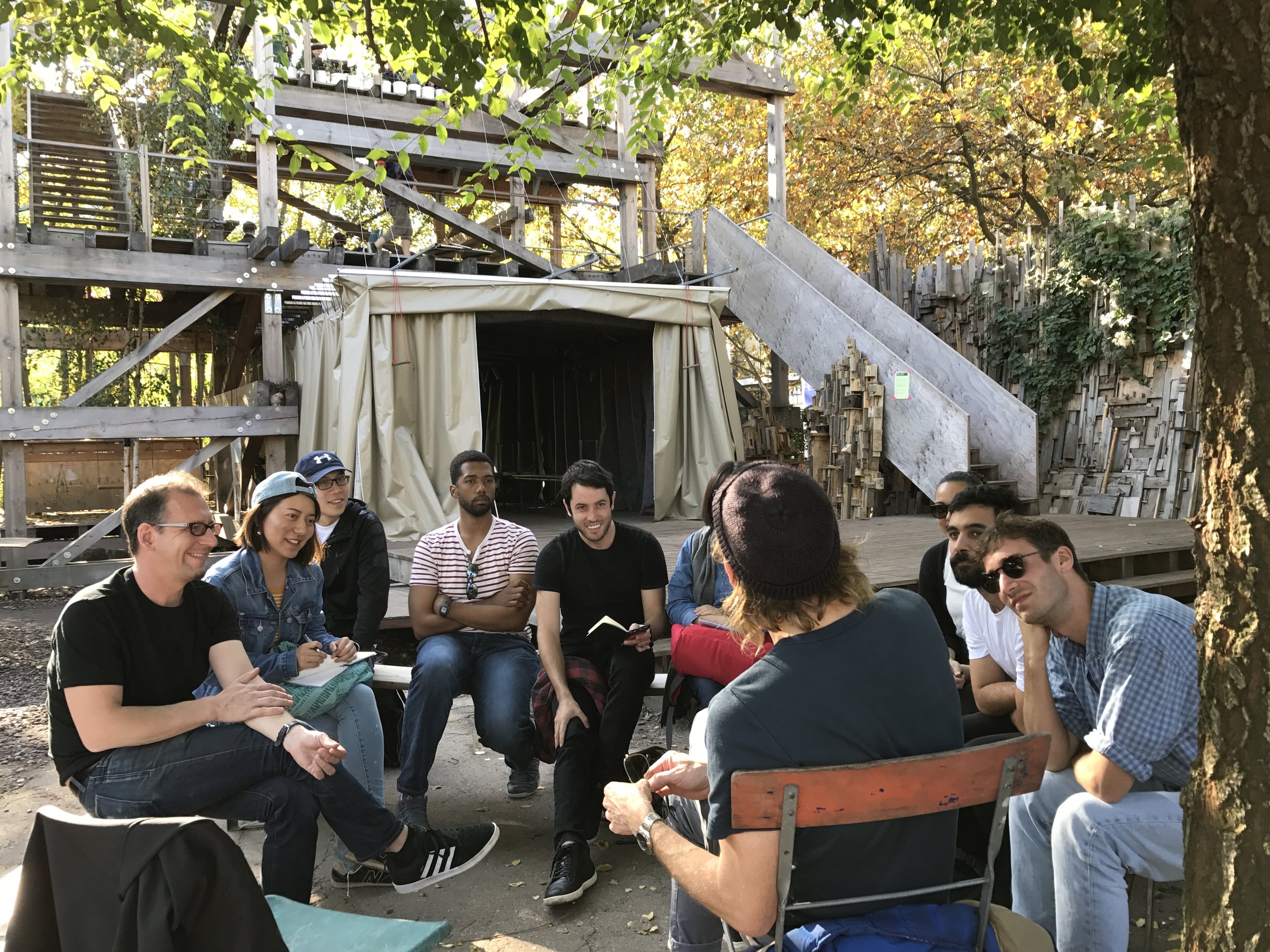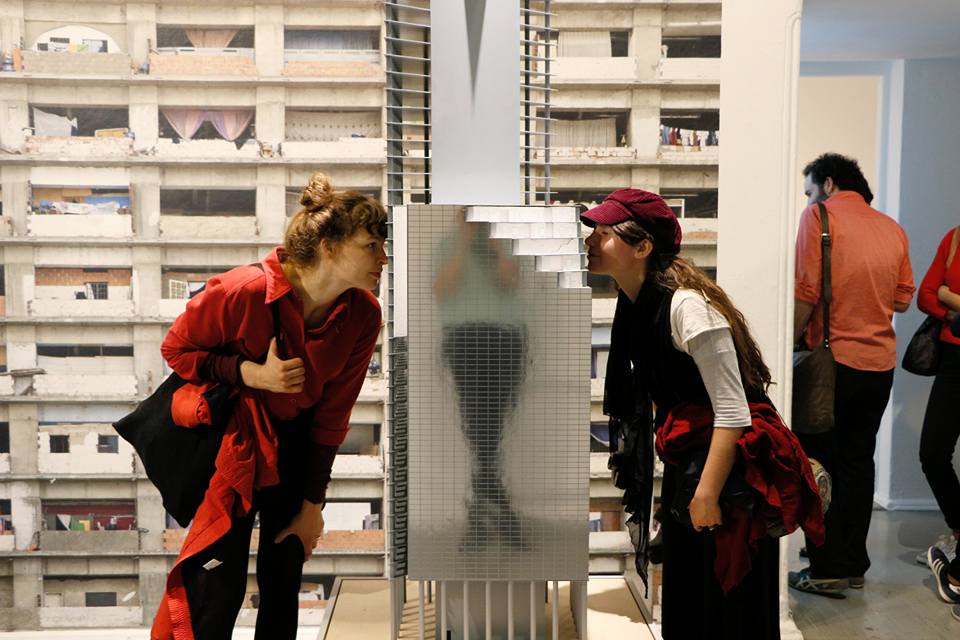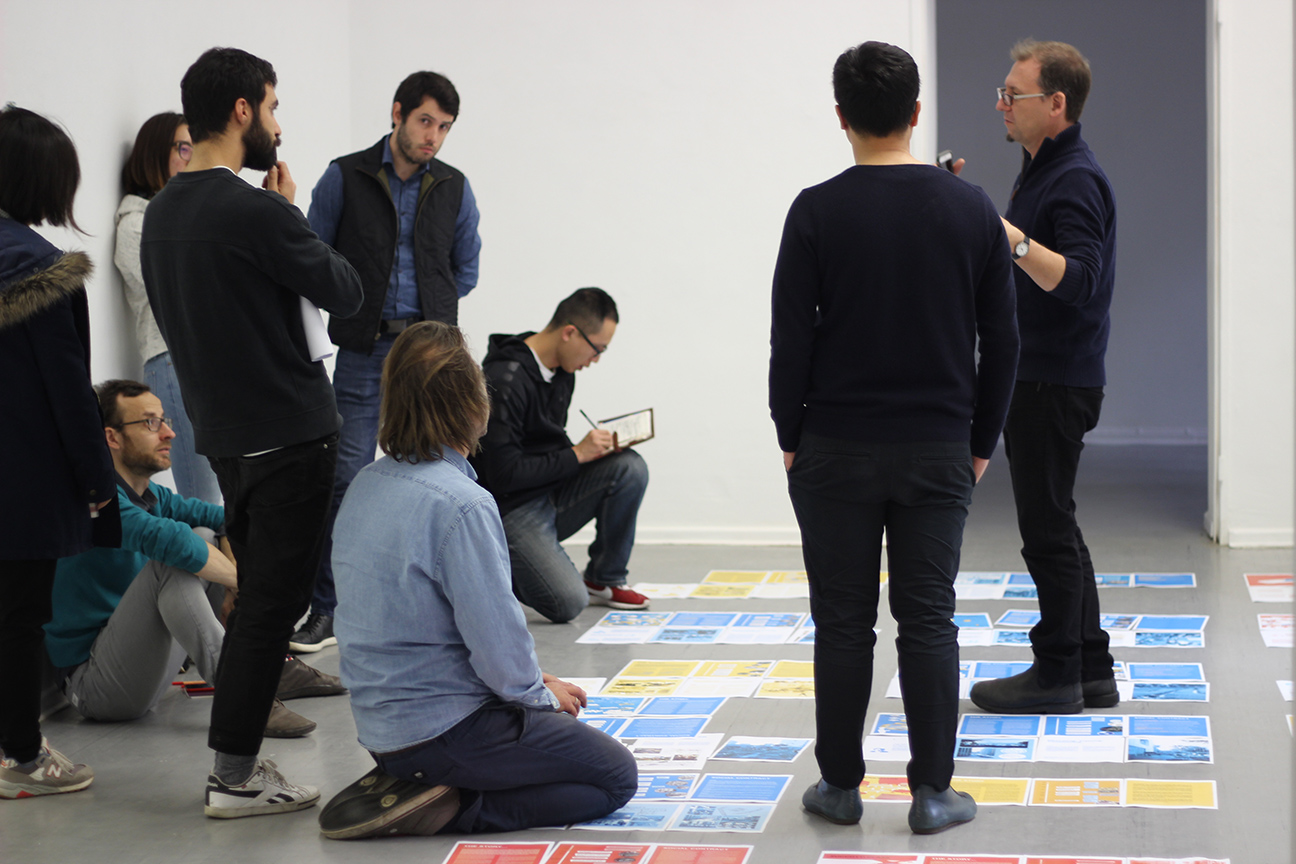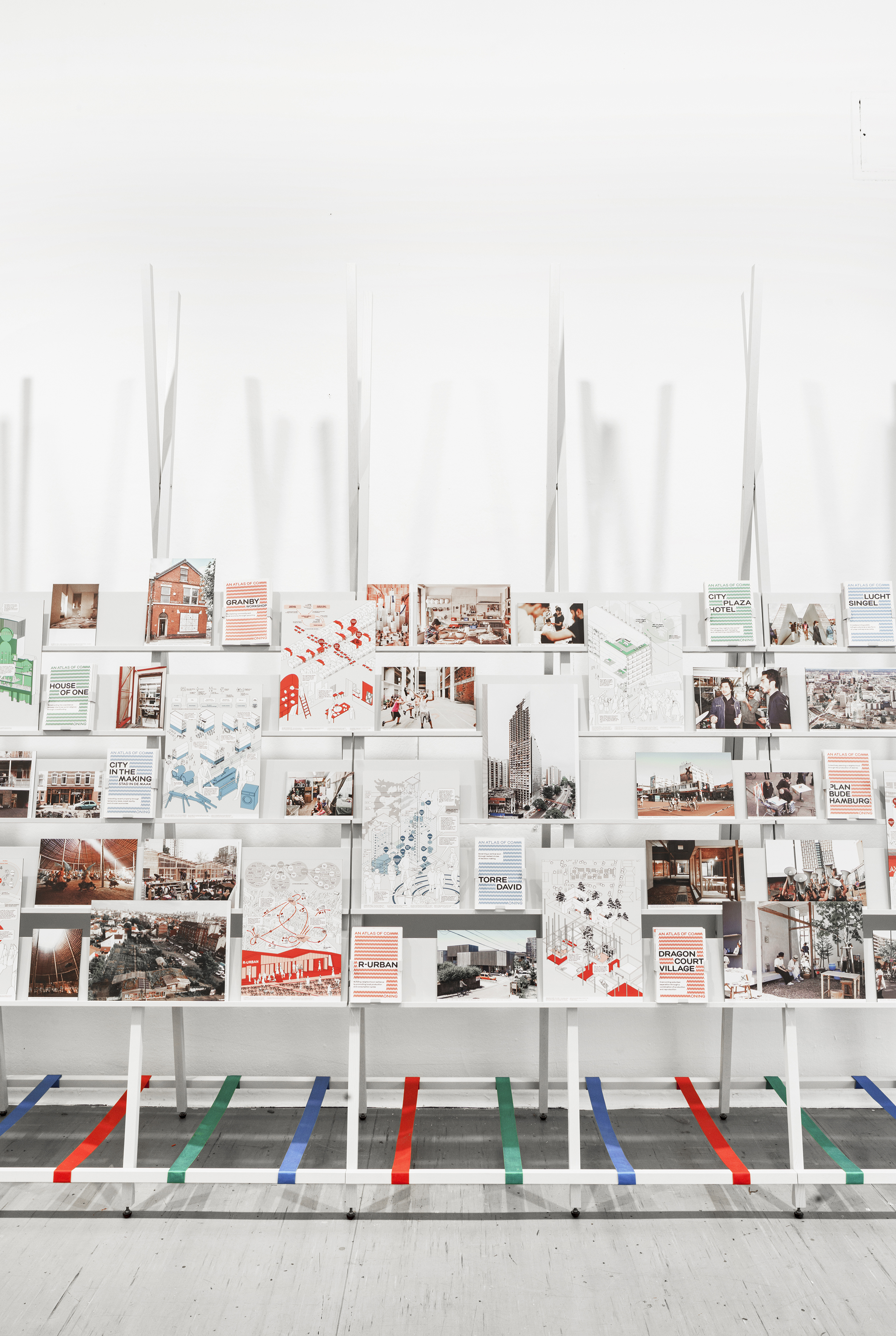The An Atlas of Commoning exhibition explores how citizen-led initiatives can transform cities into more just and resilient places. After its premiere in Berlin last summer, the ifa exhibition will travel internationally over the next 10 years. Image credit: Sebastian Schels
The international premiere of An Atlas of Commoning opens Saturday, June 29, 2019 at the Miller Institute for Contemporary Art (ICA) at Carnegie Mellon University. Curated by Associate Professor Stefan Gruber together with German architecture journal ARCH+ and ifa (Institut für Auslandsbeziehungen), the exhibition explores how citizen-led initiatives can transform cities into more just and resilient places. How would our cities look and feel if they weren’t designed and built by developers and city officials – but by the inhabitants who bring them to life everyday? What if we saw cities, neighborhoods, and homes through the lens of their use-value, the well-being of the communities they serve – instead of as investment vehicles in the real estate market? Can we imagine cities that are designed by and for the people, and that prioritize their hopes and concerns?
These questions have been at the heart of the Master of Urban Design (MUD) research studios since 2017, spanning fieldwork in Berlin, Zurich ,and Pittsburgh, and culminating in students’ thesis projects. Their collaborative research has led to the assembly of the Atlas, a visual archive with a diverse selection of contemporary and historical case studies on practices of commoning, understood here as a process of dealing with differences and conflicts between the individual, the community, and society. It is a process of spatial organization in the relations between production and reproduction, ownership and access to resources, as well as one that brings together solidarity networks and redefines individual and collective rights. The exhibition develops accordingly along three axes of investigation, each illustrating the tension inherent in practices of sharing: Ownership – Access, Production – Reproduction, and Right – Solidarity. Artist contributions open up additional perspectives on the subject.




The project questions prevailing social and political structures in order to seek new forms of collective, yet pluralistic governance. The findings show that in spite of rampant cynicism and ecological pressure, alternatives are already in the making all around us: architecture is already being produced beyond the confines of state or market; architects can have agency and help communities shape the environment they live in.
Yidan Gong, MUD graduate and native of Wuhan, China, wrote, “When I started this journey, I had doubts about whether the commons could be an alternative in China, where the state plays such an important role. However, conducting research through field trips and the analysis of case studies with varied cultural, political, and economic backgrounds opened up my imagination. Now I’m a strong believer that the commons can be a third way, even in China.” Gong’s fellow graduates include Paúl Moscoso Riofrio, who works with Estudio Teddy Cruz+Fonna Forman on rethinking border conditions between Tijuana and San Diego; Tamara Cartwright, who recently joined Pittsburgh’s Neighborhood Allies as Program Manager for Social Impact Design; and Chun Zheng, a current PhD student in CMU’s Transition Design on urban commons.
After its premiere in Berlin last summer, the ifa exhibition will travel internationally over the next 10 years. The initial selection of 25 case studies will be complemented with new ones added in collaboration with local partners as the exhibition tours from city to city. As a result, the “Atlas of Commoning” will grow as an open knowledge archive, producing an invaluable documentation of local grassroots projects from all over the world.
For the Pittsburgh edition, eight local initiatives were added, including the Braddock Library, the Breathe Project, City of Asylum, Community Forge, Garfield Community Farm, General Sisters, Latham Street Commons, and Manchester Bidwell. Throughout the summer of 2019, a series of workshops, discussions, and tours will provide a platform for the exchange of experiences, knowledge, and skills, bringing people together to share their experiences, stories, and struggles of collective action, community organization, or simply commoning.
“By connecting existing but often marginalized initiatives, we aim to render their emancipatory power more visible, and reveal how together they already constitute a critical mass,” Gruber said. From September 19-21, 2019, a symposium will bring together local and international commoners in a three-day conference, Designing for a Commons Transition, the first of its kind in the U.S. to investigate the relations between Architecture, Urbanism, and the thriving contemporary commons debate.
Learn more about all upcoming events for An Atlas of Commoning on the School of Architecture’s events page.

